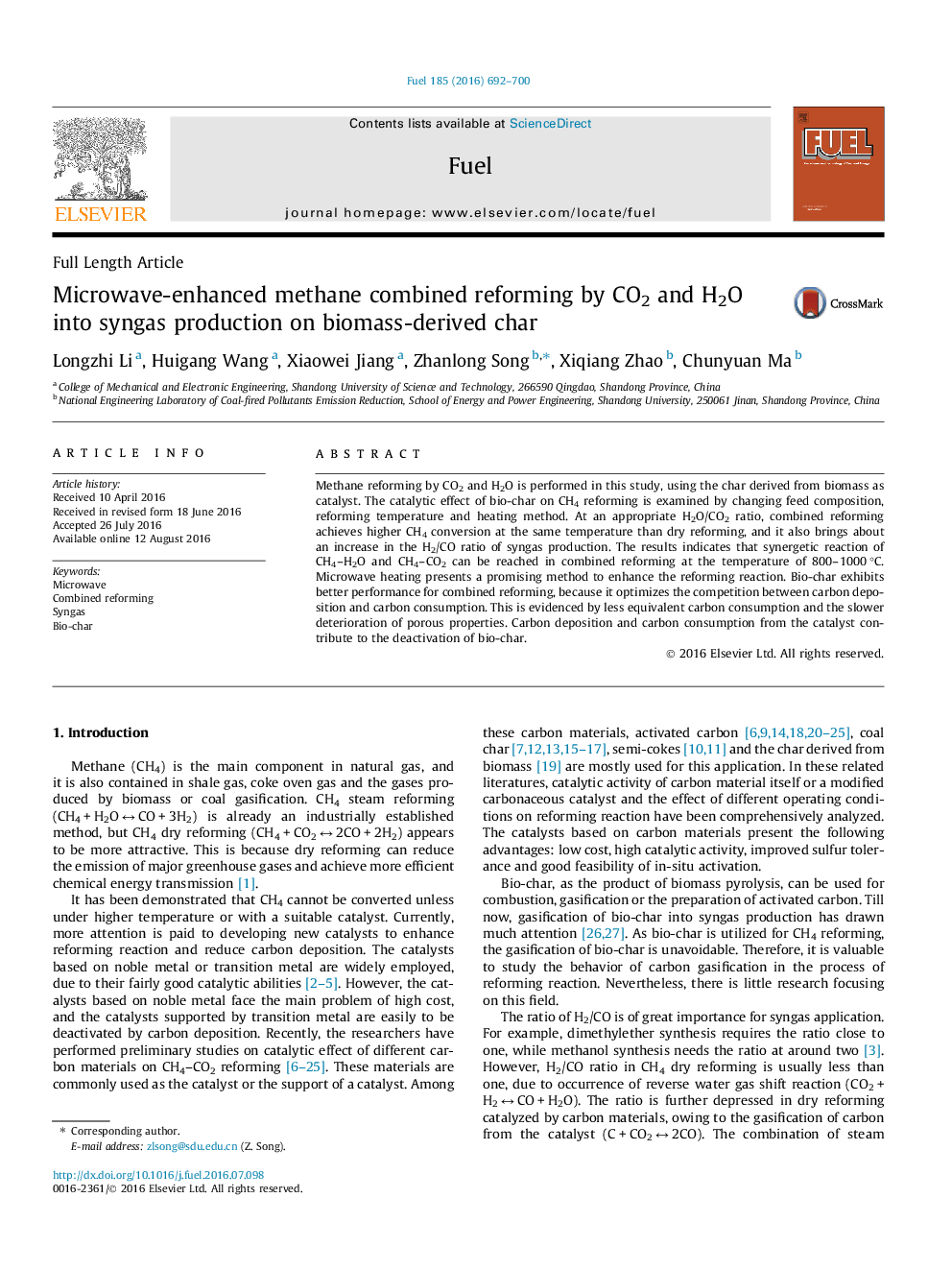| Article ID | Journal | Published Year | Pages | File Type |
|---|---|---|---|---|
| 6632870 | Fuel | 2016 | 9 Pages |
Abstract
Methane reforming by CO2 and H2O is performed in this study, using the char derived from biomass as catalyst. The catalytic effect of bio-char on CH4 reforming is examined by changing feed composition, reforming temperature and heating method. At an appropriate H2O/CO2 ratio, combined reforming achieves higher CH4 conversion at the same temperature than dry reforming, and it also brings about an increase in the H2/CO ratio of syngas production. The results indicates that synergetic reaction of CH4-H2O and CH4-CO2 can be reached in combined reforming at the temperature of 800-1000 °C. Microwave heating presents a promising method to enhance the reforming reaction. Bio-char exhibits better performance for combined reforming, because it optimizes the competition between carbon deposition and carbon consumption. This is evidenced by less equivalent carbon consumption and the slower deterioration of porous properties. Carbon deposition and carbon consumption from the catalyst contribute to the deactivation of bio-char.
Related Topics
Physical Sciences and Engineering
Chemical Engineering
Chemical Engineering (General)
Authors
Longzhi Li, Huigang Wang, Xiaowei Jiang, Zhanlong Song, Xiqiang Zhao, Chunyuan Ma,
